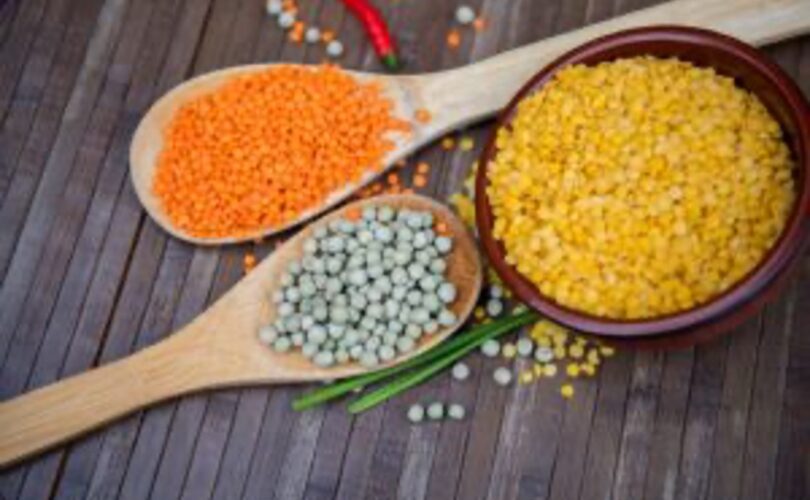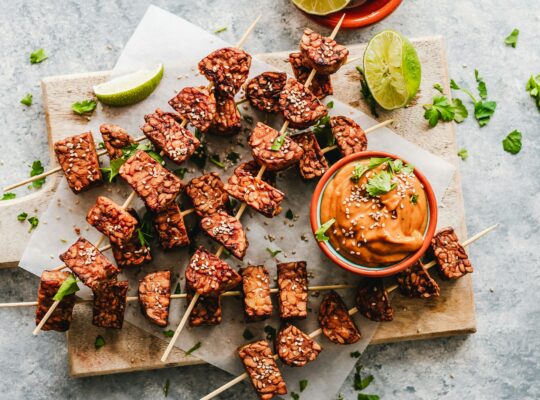Proteins have various bodily functions, including building, maintaining, and repairing muscles, as well as supporting immunity, hormone production, and the creation of brain neurotransmitters like serotonin. If you don’t consume enough protein, it can negatively impact your mental health.
Protein is one of the three macronutrients, along with carbohydrates and fats. It is composed of 20 different amino acids that combine in different ways to form various types of protein. The body can produce 11 of the 20 amino acids, while the remaining 9 must be obtained from food. Each amino acid serves a different function.
Proteins can be categorised as complete or incomplete based on their amino acid composition. Complete proteins contain all essential amino acids, while incomplete proteins do not. In general, complete proteins are derived from animal sources, although a few plant-based sources, such as quinoa, buckwheat, soy, hemp, and chia seeds, also contain complete proteins.
Types of Protein:
Complete Proteins:
• Animal protein: meat, fish, poultry, eggs, dairy.
• Plant proteins: tofu, tempeh, soy milk, edamame, quinoa, buckwheat, hemp seeds, chia seeds.
Incomplete Proteins:
• Plant proteins: beans, legumes, nuts, seeds, grains (oats, rice, wheat, bulgur.)
Knowing that some foods contain complete or incomplete proteins helps us understand why variety in the diet is essential. Otherwise, you can end up with a deficiency in amino acids if you repeat eating the same incomplete ones.
Aim for about ¼ of your plate to be a protein source when planning a meal.
Protein helps you feel fuller for longer because it takes more energy to digest than carbs. Prioritising protein at each meal can be helpful if you are trying to lose weight. It also helps prevent muscle loss, especially as you reach 40 years and beyond.
How Much Protein Do You Need?
Guidelines suggest between 0.8 and 1.2 grams per kilo of body weight (1).
E.g., if you weigh 60 kg, you need about 60 grams of protein. I suggest not going lower than 1 gram per kilo of body weight. If you’re trying to gain muscle, you may increase this amount to 1.8 to 2 grams of protein per kilo of body weight.
Reaching your target can be challenging if you are vegan or vegetarian. I believe in prioritising natural foods, but protein powders can be helpful, especially with specific muscle-building goals.
Protein Content Of Common Foods:
Content of protein, in grams (2):
- ½ cup edamame beans: 8
- 1 egg: 6
- ½ cup lentils: 9
- ½ cup cannellini beans: 8
- 2 tbsp peanut butter: 7
- ¼ cup nuts: 4 to 6
- ½ cup bran: 6
- 100g cod: 21
- 100g can salmon: 20
- 120g sirlon cooked: 24
- 100g chicken cooked: 28
- 100g tempeh: 19
- 200g natural low fat yogurt: 5
- 1 cup milk: 10
For most people who just want to be healthy, you don’t need to count your protein each day. Keep it simple: ¼ of protein per plate and rotate the types of food you eat regularly.
If you are vegan or mostly eat a plant-based diet, it’s important to seek professional advice and regularly monitor your health through testing to ensure you don’t become deficient in nutrients.
My book “THRIVING ON A VEGAN DIET” is available for download. Learn how to eat optimally on a plant-based diet with my comprehensive guide, including a bonus 2-week meal plan and recipes.
You may also like to read my blog post on lysine. Lysine is one of the amino acids that I frequently find my clients come to me deficient in.









Hi, this is a comment.
To get started with moderating, editing, and deleting comments, please visit the Comments screen in the dashboard.
Commenter avatars come from Gravatar.